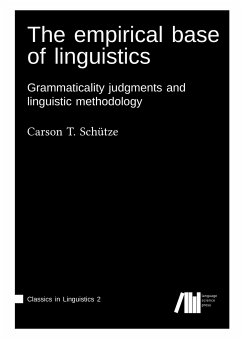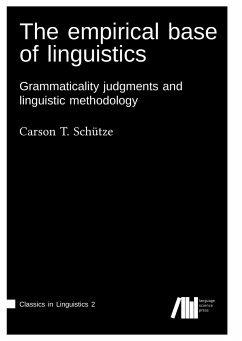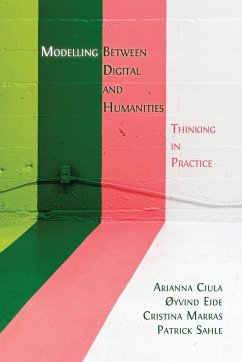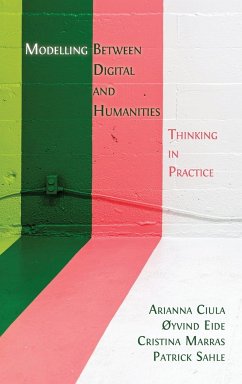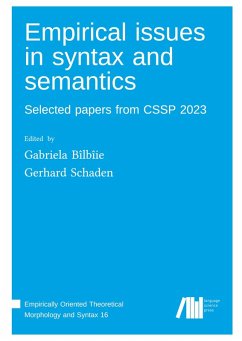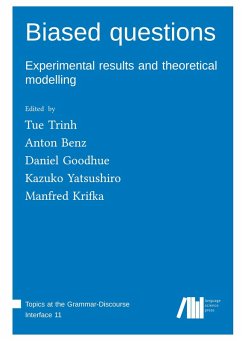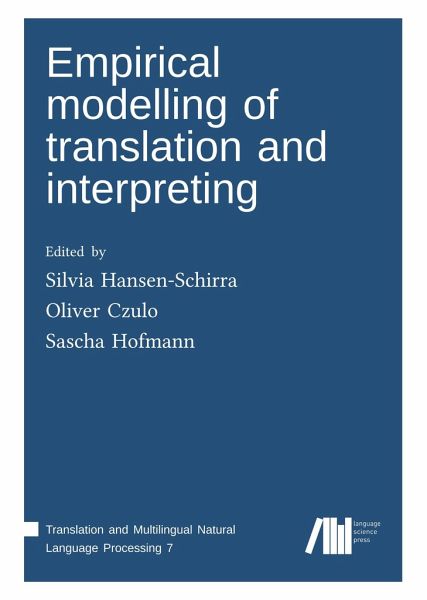
Empirical modelling of translation and interpreting
Versandkostenfrei!
Versandfertig in 1-2 Wochen
43,99 €
inkl. MwSt.

PAYBACK Punkte
22 °P sammeln!
Empirical research is carried out in a cyclic way: approaching a research area bottom-up, data lead to interpretations and ideally to the abstraction of laws, on the basis of which a theory can be derived. Deductive research is based on a theory, on the basis of which hypotheses can be formulated and tested against the background of empirical data. Looking at the state-of-the-art in translation studies, either theories as well as models are designed or empirical data are collected and interpreted. However, the final step is still lacking: so far, empirical data has not lead to the formulation ...
Empirical research is carried out in a cyclic way: approaching a research area bottom-up, data lead to interpretations and ideally to the abstraction of laws, on the basis of which a theory can be derived. Deductive research is based on a theory, on the basis of which hypotheses can be formulated and tested against the background of empirical data. Looking at the state-of-the-art in translation studies, either theories as well as models are designed or empirical data are collected and interpreted. However, the final step is still lacking: so far, empirical data has not lead to the formulation of theories or models, whereas existing theories and models have not yet been comprehensively tested with empirical methods.This publication addresses these issues from several perspectives: multi-method product- as well as process-based research may gain insights into translation as well as interpreting phenomena. These phenomena may include cognitive and organizational processes, procedures and strategies, competence and performance, translation properties and universals, etc. Empirical findings about the deeper structures of translation and interpreting will reduce the gap between translation and interpreting practice and model and theory building. Furthermore, the availability of more large-scale empirical testing triggers the development of models and theories concerning translation and interpreting phenomena and behavior based on quantifiable, replicable and transparent data.




